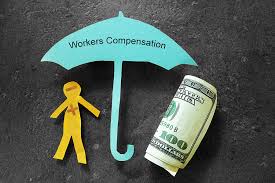
Injured workers can continue collecting workers’ compensation benefits even after being terminated. However, some states have restrictions. For example, a worker’s compensation claim could be rejected based on why the person was let go. However, if the employer terminates the worker because they filed for their lawful workers’ compensation, this constitutes as retaliation by the employer.
Can I Be Laid off While on Workers’ Compensation?
It is against the law for an employer to take punitive action against an employee who has filed a worker’s compensation claim. If the employer were allowed to fire on the grounds of filing a workers’ compensation claim, it would significantly undermine the system of workers’ compensation.
The only exception to being laid off while on worker’s comp is if your employer has already laid off other employees and must make cuts within their business. In these cases, employers are allowed to lay off workers who are injured and are on workers’ compensation.
If an employer takes retaliatory action against an injured worker for submitting a workers’ compensation claim, the worker has the legal right to launch a lawsuit for wrongful termination. They may seek an increase in workers’ compensation and medical benefits, back wages for the wage loss, and the opportunity to return to their previous position.
What Constitutes Retaliation in Workers’ Comp Claim?
Reducing the worker’s pay, laying off the worker, requiring the worker to utilize the vacation on medical check-ups, and transferring them to a less desirable position, among others, are all examples of retaliation.
Retaliation is a serious concern for workers who make workers’ compensation claims. Workers across the country are protected from retaliation by their employers. However, an employer may be exempt from liability for retaliation if they can demonstrate that the adverse action was for a legitimate business reason.
In some states, including North and South Carolina, workers’ compensation laws make it a crime to engage in this form of retaliation. The law protects employees who have been terminated after submitting a workers’ compensation claim due to a work-related injury. If you have been fired after seeking worker’s comp, you should strongly consider hiring an attorney to offer legal counsel and initiate a wrongful termination lawsuit.
Personal Injury Lawyer Near Me 828.286.3866
What You Can Get From Workers’ Comp
When you think of workers’ compensation, there are several benefits you can get. Here are some of them:
- Medical expenses – If you’re injured on the job, your employer is required to cover your medical expenses. Medical expenses can include treatment by a doctor, physical therapy, and prescriptions.
- Temporary disability benefits – If you can’t work because of your injury, you may be eligible for temporary disability payments from your employer. These payments help you pay bills when you’re unable to work or receiving treatment for your injury.
- Permanent disability benefits – If your injury prevents you from ever returning to work or if it causes permanent disabilities that make it impossible for you to perform certain tasks, you may be eligible for permanent disability benefits from your employer.
- Death benefits – If an employee dies due to an accident on the job (or while performing duties related to their employment), their spouse or dependent children may be entitled to death benefits.
Can I Get Fired for Filing Workers’ Compensation?
No, your employer is legally prohibited from firing you on the grounds of filing a workers’ compensation claim. When an employer disobeys this law, it’s known as “employer retaliation.” Retaliation occurs when an employer terminates an employee because they exercised a legal privilege or activity. If an employer fires you for filing workers’ compensation claims, you can sue them.


Can My Workers’ Compensation Claim Be Denied?
Yes, a worker’s comp claim can be denied based on why the worker was fired. A denial can occur if the worker was violating their contract, which led to their injury.
Workers’ comp insurers usually employ some defenses for denying compensation, such as if:
- The worker was under the influence of drugs at the time of their injury
- The worker was off duty while they were supposed to be working
- The injury was related to actions outside the scope of employment
- The injury occurred while committing a crime
How Does the Timing of My Work Injury Matter?
Timing counts for two reasons. First, in some states, timing is prima facie evidence of wrongful termination. Second, the claim can be denied if the worker was injured after being fired.
When the injury occurs is a factor that must be considered for the workers’ compensation claim. Workers’ compensation covers only injuries sustained while performing work. The harm may not be covered if it occurred before the termination.
Get Help From a Workers’ Compensation Lawyer
Workers’ compensation claims can be complicated and confusing, especially when dealing with an insurance company that wants to deny your claim or pay out very little. Having a workers’ comp lawyer help with your claim is beneficial.
Our lawyers from Farmer & Morris Law, PLLC, know the appropriate evidence to prove your injury and liability. We will ensure that no details slip through the cracks during negotiations with insurance companies or court proceedings.
Contact us today and get help to collect workers’ compensation after being fired.












